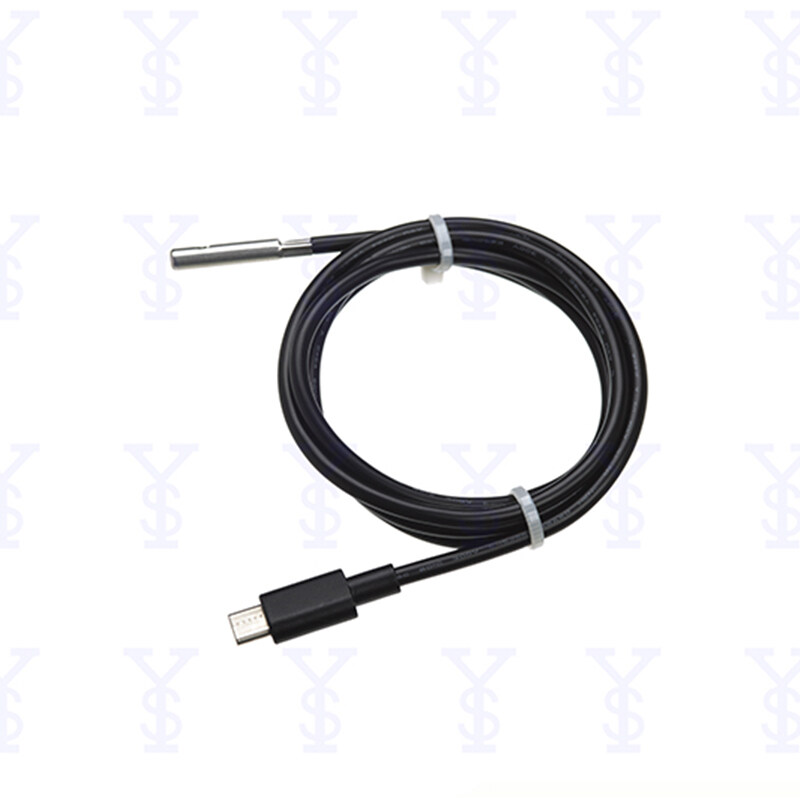Errore di furmatu di email
emailCannotEmpty
emailDoesExist
pwdLetterLimtTip
inconsistentPwd
pwdLetterLimtTip
inconsistentPwd


Understanding the Importance of Industrial Temperature and Humidity Sensors
In the world of industrial automation and process control, industrial temperature and humidity sensors play a critical role. These sensors ensure the efficiency, safety, and reliability of industrial operations by providing accurate measurements of environmental conditions. This blog will delve into the significance of these sensors, their applications, and how they can benefit various industries.
What are Industrial Temperature and Humidity Sensors?
Industrial temperature and humidity sensors are devices designed to measure the temperature and humidity levels in an industrial setting. These sensors are built to withstand harsh environments and provide precise data to control systems.
Types of Temperature and Humidity Sensors
1. Thermocouples: Commonly used for measuring temperature, thermocouples are known for their wide range and durability.
2. RTDs (Resistance Temperature Detectors): These offer high accuracy and stability over a wide temperature range.
3. Thermistors: Known for their sensitivity, thermistors are ideal for applications requiring precise temperature control.
4. Hygrometers: These are specifically designed to measure humidity levels.
Applications of Industrial Temperature and Humidity Sensors
Manufacturing
In manufacturing, maintaining optimal environmental conditions is crucial. The temperature and humidity sensors help in monitoring and controlling the production environment, ensuring product quality and safety.
Pharmaceuticals
The pharmaceutical industry relies heavily on precise environmental control. These sensors ensure that the storage and manufacturing conditions meet strict regulatory standards, preventing spoilage and contamination.
Food and Beverage
In the food and beverage industry, maintaining the right temperature and humidity is essential for preserving product quality. Sensors help in monitoring storage conditions, ensuring that products remain fresh and safe for consumption.
HVAC Systems
Heating, Ventilation, and Air Conditioning (HVAC) systems use temperature and humidity sensors to maintain comfortable and healthy indoor environments. These sensors help in optimizing energy usage and ensuring air quality.
Benefits of Using Industrial Temperature and Humidity Sensors
Improved Efficiency
By providing real-time data, these sensors enable better control of industrial processes. This leads to improved efficiency, reduced downtime, and cost savings.
Enhanced Safety
Monitoring environmental conditions helps in identifying potential hazards, such as overheating or excessive humidity, which can compromise safety. Sensors play a critical role in preventing accidents and ensuring worker safety.
Regulatory Compliance
Many industries are subject to strict regulations regarding environmental conditions. Using the temperature and humidity sensors ensures compliance with these regulations, avoiding fines and legal issues.
Quality Control
Maintaining optimal temperature and humidity levels is essential for product quality. Sensors help in monitoring these conditions, ensuring that products meet the required standards.
Choosing the Right Industrial Temperature and Humidity Sensor
Factors to Consider
When selecting an industrial temperature and humidity sensor, it’s important to consider the specific requirements of your application. Key factors include:
1. Accuracy: Choose a sensor that provides the level of accuracy required for your application.
2. Range: Ensure that the sensor can measure the temperature and humidity levels expected in your environment.
3. Durability: Select a sensor designed to withstand the environmental conditions of your industrial setting.
4. Response Time: Consider how quickly the sensor can provide accurate measurements.
Leading Manufacturers
There are many temperature and humidity sensor manufacturers offering a wide range of products. Some of the leading manufacturers include:
1. Honeywell: Known for their high-quality sensors, Honeywell offers a wide range of temperature and humidity sensors suitable for various industrial applications.
2. Siemens: Siemens provides reliable and accurate sensors designed for demanding industrial environments.
3. Omega Engineering: Omega offers a comprehensive range of sensors known for their precision and durability.
Installation and Maintenance of Industrial Temperature and Humidity Sensors
Proper Installation
For accurate measurements, it’s essential to install sensors correctly. This involves selecting the right location, ensuring proper calibration, and following the manufacturer’s installation guidelines.
Regular Maintenance
Regular maintenance is crucial to ensure the longevity and accuracy of the sensors. This includes periodic calibration, cleaning, and inspection for any signs of wear or damage.
Future Trends in Industrial Temperature and Humidity Sensors
IoT Integration
The integration of the Internet of Things (IoT) is transforming the field of industrial sensors. IoT-enabled sensors provide real-time data to central control systems, enabling better decision-making and process optimization.
Wireless Technology
Wireless sensors are becoming increasingly popular due to their ease of installation and flexibility. These sensors eliminate the need for extensive wiring, reducing installation costs and complexity.
Advanced Materials
Advancements in materials science are leading to the development of more durable and sensitive sensors. These new materials enhance the performance and reliability of temperature and humidity sensors in harsh industrial environments.
Case Studies: Success Stories from Various Industries
Automotive Industry
In the automotive industry, precise temperature and humidity control is essential for various processes, including painting and assembly. Implementing the temperature and humidity sensors has helped manufacturers improve product quality and reduce defects.
Electronics Manufacturing
Electronics manufacturing requires strict environmental control to prevent damage to sensitive components. By using advanced sensors, companies have achieved better control over production environments, leading to higher yields and improved product reliability.
Aerospace Industry
The aerospace industry relies on precise environmental control for manufacturing and testing. Temperature and humidity sensors ensure that conditions meet the stringent requirements, ensuring the safety and performance of aerospace components.
Conclusion
Industrial temperature and humidity sensors are indispensable tools for modern industries. They provide critical data that ensures the efficiency, safety, and quality of industrial operations. By choosing the right sensors and maintaining them properly, businesses can achieve significant benefits, including improved efficiency, enhanced safety, and regulatory compliance. As technology continues to advance, the future holds exciting possibilities for even more sophisticated and reliable sensors, driving further improvements in industrial processes.

